The Master of Instrumental Music – Master Ebrahim
The book Master Ebrahim: The Forgotten Ace Clarinetist traces the journey of the legend from his hometown Ajmer to Bombay in great detail. The book contains interviews with his son Iqbal Ajmeri and his family who provided exclusive information. It has more than one hundred rare photographs and documents that have never been seen before. Professor Surjit Singh left no stone unturned to make sure the forgotten legend is given justice and continues to be a part of our music-induced memories.
Master Ebrahim was a simple, hardworking man. Behind the curtains but still the whole and sole of the instrumental music world. Very well-known and respected by his peers, he shied away from glamour and publicity. Born in 1915, his family was originally from Ajmer in the town of Kishangarh, Rajasthan. When he was about four years old, his father Rehmat Ali decided to come to Bombay in the Pydhonie area. Master Ebrahim grew up and lived all his life there.
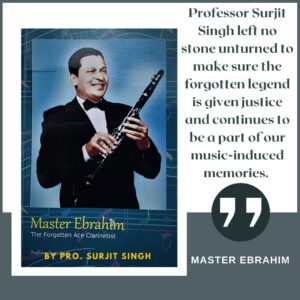 In the evenings and especially holidays, when he was not in school, he naturally explored the neighborhood with young boys of his age. The period before the talkies (before 1931) and the beginning of the silent cinema (1914 onward). There was one thing that fascinated this young man of 10 or 11. Brass bands! The boy was wooed by the clarinets. He developed a keen sense of music and became interested in learning it, which was surprising because he came from a non-musical background. Seeing his interest, his father Rehmat Ali bought him a clarinet with 13 keys. He also received training in classical music from legendary musicians such as Banne Khan Meerutwale, Jiray Khan Panipatwale.
In the evenings and especially holidays, when he was not in school, he naturally explored the neighborhood with young boys of his age. The period before the talkies (before 1931) and the beginning of the silent cinema (1914 onward). There was one thing that fascinated this young man of 10 or 11. Brass bands! The boy was wooed by the clarinets. He developed a keen sense of music and became interested in learning it, which was surprising because he came from a non-musical background. Seeing his interest, his father Rehmat Ali bought him a clarinet with 13 keys. He also received training in classical music from legendary musicians such as Banne Khan Meerutwale, Jiray Khan Panipatwale.
He persevered and turned out to be an ace classical instrumentalist with a repertoire of familiar and relatively rare ragas. He also attended classical music baithaks to see the experts in action and learn by watching them. He attended both instrumental and vocal concerts to learn about the gayiki, one such occasion was when Bade Ghulam Ali Khan visited the city. In time, he taught himself other instruments like soprano saxophone, xylophone, Vibraphone, and Jaltarang. He was on his way to becoming a well-known figure in the world of classical music.
His first clarinet was imported and was made of Ebonite. After using it for a while he realized that this was not suitable for the humid climate of Bombay. He switched to wood and liked it much better. Master Ebrahim decided to use the more complex Boehm System Clarinets. Iqbal Ajmeri says that other clarinet players were used to the Albert System and could never get used to the Boehm System, so it seems that Master Ebrahim remains the major clarinetist who used the Boehm System in India.
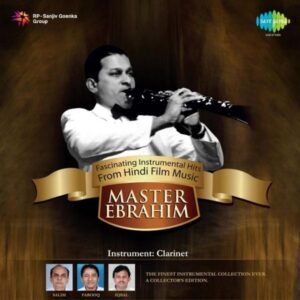
When the talkies started to be made in India in the early thirties, the good thing was that new opportunities opened up for other professionals. The people working in the Hindi/Urdu theatre could join the film industry. It is well-known that the singer-actors (e.g., Master Nisar), actresses (e.g., Jahanara Kajjan), music directors (e.g., Ustad Jhande Khan), lyricists (e.g., Agha Hashr Kashmiri), and many dialogue coaches, dance directors migrated to the talkies easily from the theatre during the early decades.
This was seen as a new opportunity by Master Ebrahim. He went to many film companies for interviews, e.g., Ajanta Movietone, Ranjit Movietone. He landed a three-year contract beginning in 1934, with Ranjit Movietone Company, Bombay. He thought he would return to the film industry after some time, but he shifted his attention to another new mass media technology, the Radio.
All India Radio officially began as a full-fledged service on June 8, 1936. Due to the popularity of the medium, a magazine called the Indian Listener started on December 22, 1935. This first issue had program guides for the three radio stations in existence at that time Bombay, Delhi, and Calcutta. The Bombay session began at 10.30 AM with a popular song by Bai Sunderabai, accompanied shut by Sarangi, Harmonium, and Tabla.
After some more music and news, it shut down with the anthem ‘God Save the King Emperor’. A Sarod solo by Budhi Bhadra and a light classical program by Khan Sahib Hussein Khan, again accompanied by Sarangi, Harmonium, and Tabla. Master Ebrahim interviewed in AIR and got his first contract. His first performance appears to be on Nov 7, 1936, at 5:15 PM, a fifteen-minute solo on clarinet. No other information is given in the Indian Listener issue. He kept working with them on a contract basis until 1974 when he developed Rheumatism and was unable to continue playing.
In 1942, Master Ebrahim joined the then HMV (His Master’s Voice) and stayed with them as a staff artist until all his working life. The company was involved in many music-related activities and was a monopoly until about the 70s of the previous centuries. Master Ebrahim was called upon to perform many duties and did admirably.
The film songs needed instruments to provide the introduction and the interludes for the songs. Master Ebrahim played many roles in this exercise. He provided instrumental support to thousands of songs sung by all the famous singers and popular music directors in hundreds of films.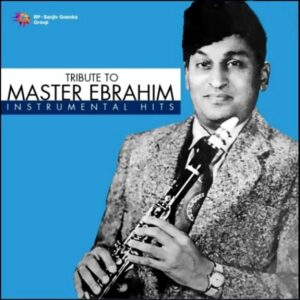
As in his parallel work at the All-India Radio, he provided musical backing to many different kinds of records, not just filmi. When the film song records began selling, HMV thought of expanding their filmi repertoire in other directions. They had different singers sing popular songs from films. These were called version records.
Another area of expansion was to use the same instrumentation as a film song but replace the vocals with yet another instrument. It must have been but someone in the company knew that the clarinet can be made to produce a human-like voice and they should issue tunes of film songs played on it. Master Ebrahim saw this as an opportunity to show his talents and started making these tune records. They became very popular and were issued in the hundreds from the 40s to the 60s. His 78 rpm records are very rare and are now being sold for hundreds of dollars on the internet. Later the HMV also issued EP, LP, and CDs based on his work.
His clarinet-based film tunes were very popular because the HMV kept issuing records. Did you know the famous Indian writer Ruskin Bond enjoyed Master Ebrahim’s tunes! He wrote in the Deccan Herald, October 17, 2004: “I was also fond of the clarinet (turj) playing of an Indian musician, Master Ibrahim, and I had some of his recordings which transported me back to the streets and bazaars of small-town India. Light, lilting and tuneful, I preferred this sort of flute music to the warbling’s of the more popular songsters.
Shanti Raval on Master Ebrahim
Master Ebrahim is probably the only clarinetist on whose classical music a doctoral dissertation has been written. Shanti Raval wrote this thesis under the chairpersonship of Dr. Esther Lamneck of the University of New York, New York, USA. The title of her thesis was, ‘The Adaptation of The Clarinet to Hindustani Music: The Playing Style of Master Ebrahim’ It was submitted to and approved by the Steinhardt School of Culture, Education, and Human Development of the university in 2009.
Master Ebrahim’s records and CDs of his works on film tunes are available, no record of his classical music was ever made. After the usual acknowledgments and the Table of Figures, the thesis is organized into eight chapters. She learned how to play the clarinet and also learned about Hindustani (i.e., North Indian) classical music.
Shanti Raval describes his early life, how he learned to play the clarinet, and how he spent his life working with All India Radio, HMV (Now SaReGaMa) with an occasional foray into providing music direction for films. She mentions how he was the only prominent clarinetist using the Boehm System and how prolific he was in recording film tunes on the 78 RPMs. She concludes her thoughts in general on classical music in India, on clarinet performance, and her recommendations for further study. In conclusion, it is worth quoting at length her assessment of the ragas performed by Master Ebrahim,
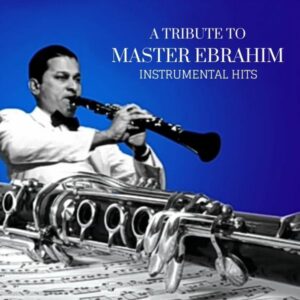
“Master Ebrahim can approach a raga in different ways, either light classical or classical, but that his general stylistic characteristics stay constant. Master Ebrahim’s performance of Bhimpalasi, is heavily influenced by light classical music. It is possible that under other circumstances, perhaps a different audience, he may have performed Bhimpalasi in a more classical manner”.
“His performance of Ahir Bhairav is played classically and is particularly impressive for its use of gamaks. Both performances share certain stylistic characteristics. Master Ebrahim approaches raga structure in a consistent way the asthaai of the alaap is weighted more heavily than the antara, and compositions are always played in their entirety before starting any improvisation”.
Master Ebrahim’s out of seven children, Salim Ajmeri, Faroq Ajmeri & Iqbal Ajmeri took his musical legacy ahead. It’s a matter of pride that Master Ebrahim’s son kept their father’s work record with great care. Three brothers were very much instrumental in recordings of Khayyam, Shankar- Jaikishan, Hemant Kumar, Kalyanji-Anandji, Salil Chowdhary, Ravindra Jain, Kanu Ghosh, Jagjit Sing, Bhappi Lahiri, and Jatin Lalit.
All the brothers played Vibraphone in thousands of Bollywood songs, to name a few films Saccha Jhutha’ 1970, Anand’ 1971, Kabhi Kabhi’ 1975, Umrao Jaan’ 1981, Lawaris’ 1981, Mr. Natwarlal’ 1979, Razia Sultan’ 1983, and many more. They played for path-breaking TV series like Ramayan, Mahabharat, Mirza Ghalib, Kahkashan (Ali Sardar Zafre), Sham-E-Ghazal, Aarohi & Marathi Serials like ‘Shabdanchya Palikade’.
Master Ebrahim’s son, Iqbal Ajmeri, has another facet of his life, his association with various societies. He remembers many special shows. Chandidas (1934) and Prithvi- raj Kapoor was invited as a guest. Film festivals of Suraiya, Sohrab Modi, A R Kardar, and Majrooh Sultanpuri were also held and they were invited as special guests. The Society is still active and Iqbal Ajmeri is the office secretary. Taking ahead the legacy of his father a humongous artiste in his best capacity possible.
All in all, it can be seen that Salim, Farooq, and Iqbal carried out their illustrious father’s legacy admirably well.


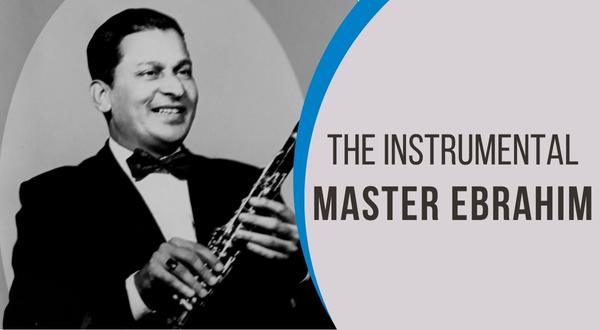
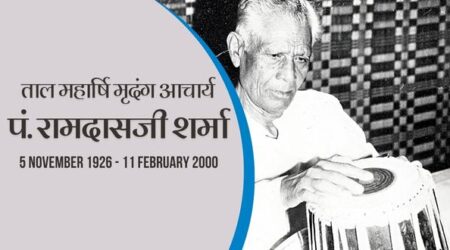
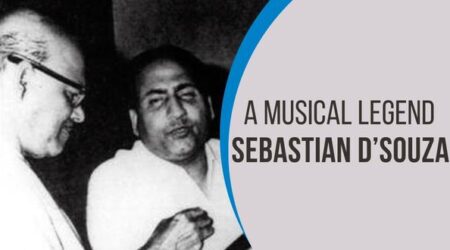
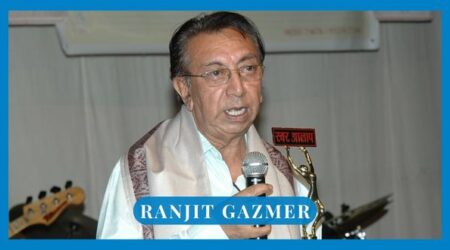
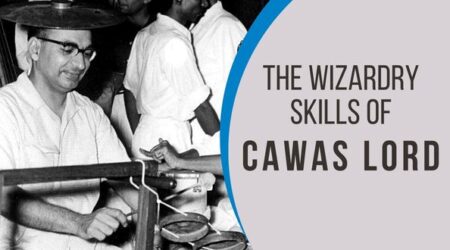
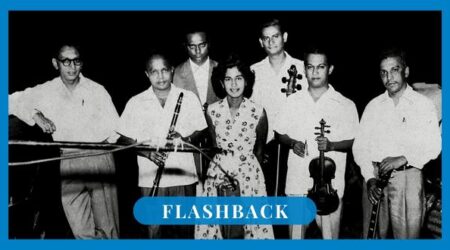
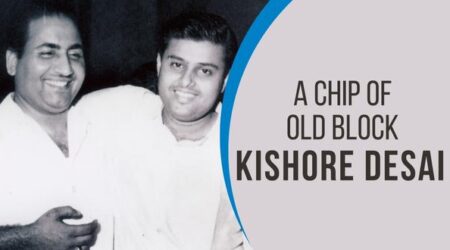
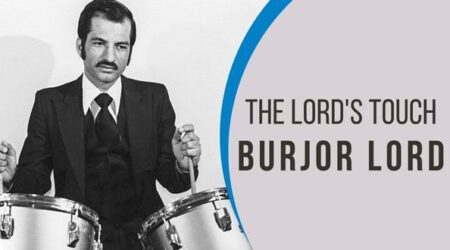
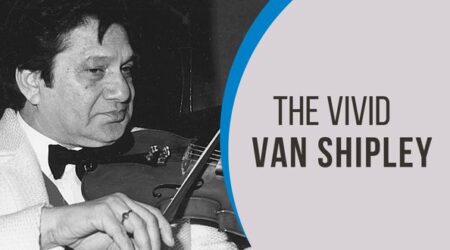
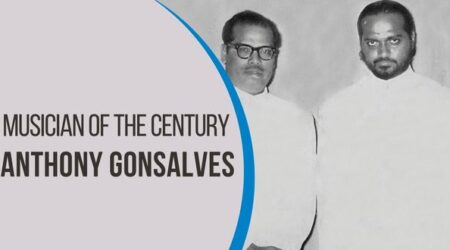
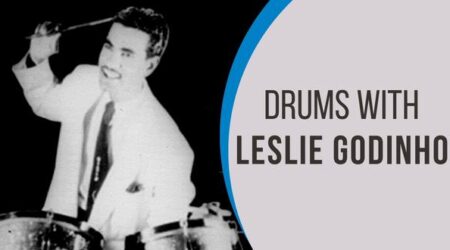

Comments (9)
Very Well Written Piece. Clarinet was an integral part of Golden era film music and yet not much is discussed about it. This article entails perfectly about the instrument and the legendary player Master Ebrahim.
? Great. Probably the only person/Sanstha undertaking this kind of rare work is Swar Alap ..?
वाह, मास्टर इब्राहिम के बारे ज्यादा जानकारी नही थी,
बहुत ही विस्तृत और गहराई में जाकर निकाली गई जानकारी उपलब्ध करवाई ।
सच मे भारतीय संगीत ऐसे कई बेहतरीन , नायाब हीरों से भरा पड़ा है
धन्यवाद स्वर आलाप
Thanks for the review. More info and where to buy on my website http://hindi-movies-songs.com/joomla/index.php/published-books/2-uncategorised/2095-musing-848-biography-of-master-ebrahim
Nice. Dinesh भाई, can you write something about श्री राजन सिरकर जी, दर्शन सिंह जी and अब्दूल उमर जी, other clarinet players of old days ? राजन सिरकर जी had played many film tunes on clarinet of songs of shri K L Saigal ji, Shri Pankaj Malik ji and other singers of those days. I listened Rajan Sirkar जी on Clarinet in film tunes programmes on Radio Ceylon (Firstly by Manohar Mahajan and afterwords by Padmini Parera) in past, but very sorry to say that those tunes have not been concerted in digital formate and not stored on their computer system and discontined use of record players.
Awesome! Playing the works of Master Ebrahim since years on air. Loved reading such a brilliant piece of writing about him. Saving this for my own archives.
Master Ebraham ji’s one of the best Clarinet playing is in the song “raat bhi hai kuchh bhigi bhigi” (music by Jaydev).
Please do a story on Harmonium player Babu singh in detail